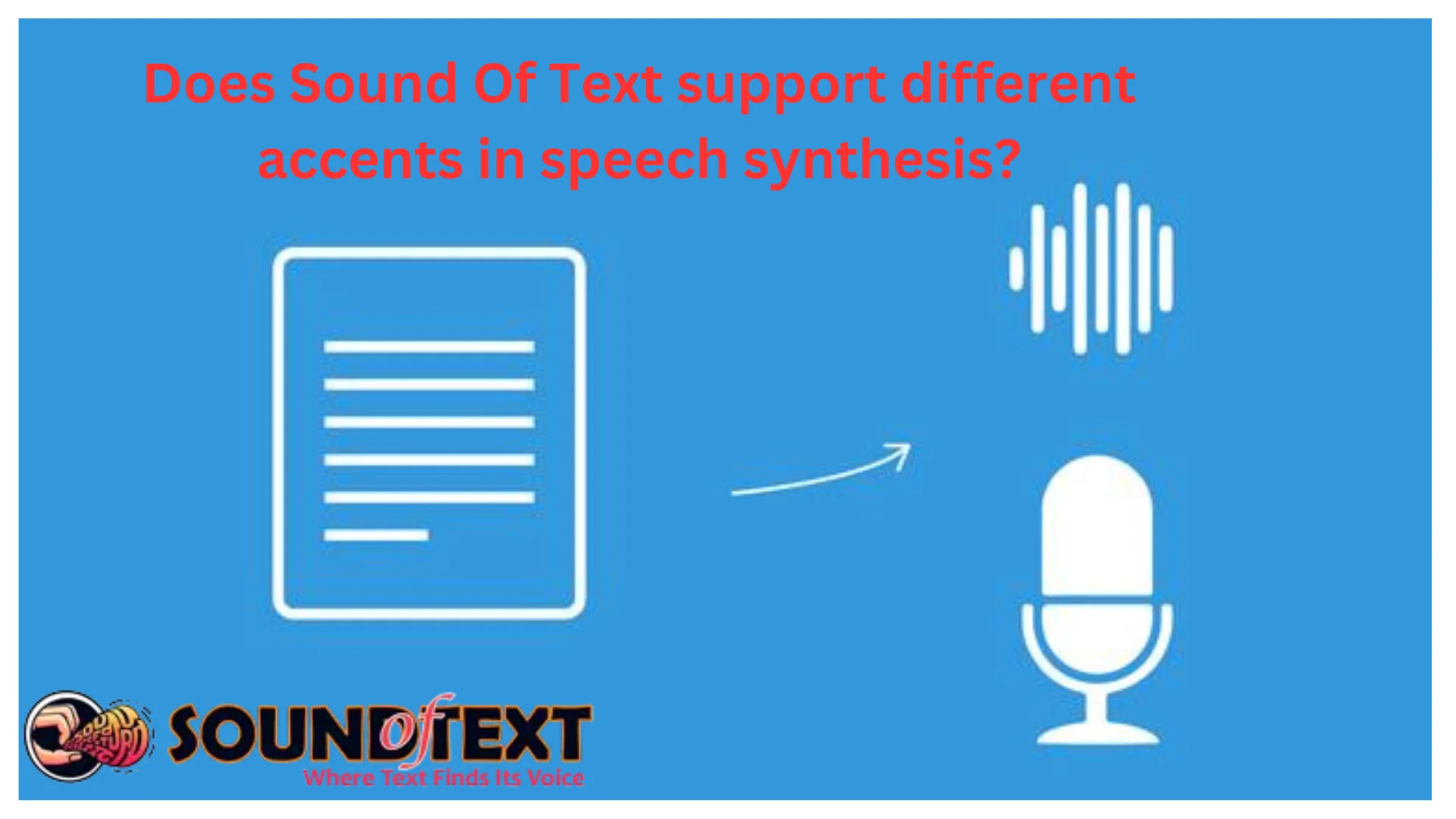Yes, SoundOfText stands out as an industry leader providing versatile text-to-speech synthesis capabilities supporting over 100 regional and international accents. This allows users worldwide to render typed content into human-sounding speech incorporating appropriate linguistic subtleties.
Let’s explore the breadth of accents offered, customization controls provided and techniques powering quality accent recreation capabilities of this acclaimed text-to-speech platform.
Contents
Range of Accents Supported
Given diverse global citizenry conversing in millionplus variants of recognized accents, SoundOfText aims to continually boost linguistic breadth in its speech corpus. Currently it supports:
- Common English Dialects: American, Australian, British, Canadian
- Prominent Global Languages: Spanish, Mandarin, Hindi, Arabic, Russian
- Other Major Accents: European (French, Italian), Asian (Chinese, Japanese, Korean), Indian, Slavic accents
The platform offers the flexibility to choose among appropriate age and gender-aligned voices as well when processing text extracts into speech.
Customization Capabilities
Beyond population accent varieties, SoundOfText allows fine-tuned vocal profile customization:
? Pace Control : Modulate pace of narration based on target consumer segments like kids or elderly.
?️ Pronunciation Focus: Stress on elegant enunciation to aid better comprehension by non-native listeners.
?Character Personas: Mimic fictional style of speaking or catchphrases used by famous cartoon personalities.
Such controls allow creators to craft distinctive listening experiences across applications like audiobook recordings, museum narrations or video game character voiceovers.
Techniques Enabling Quality Accent Synthesis
Converting written script into speech supporting various accents relies on:
- Phonetic Intelligence: SoundOfText uses linguistic lookup tables mapping words or phrases to associated phonetic spellings assisting accurate pronunciation.
- Speech Corpus Training: Machine learning trains speech engines on diverse speech dataset extracts to polish synthesis quality for niche accents.
- Responsible Representation: Continual accent enhancements are guided by cultural considerations around avoiding unfair biases or portrayal reinforcements.
- Community Feedback Loops: User input on speech quality provides cues to refine engine outputs, especially highlighting mispronounced terms.
Ongoing breakthroughs across linguistics and machine learning help SoundOfText push boundaries of speech articulation further.
User Experiences with Sound Of Text
Here are some real user experiences highlighting SoundOfText’s capabilities:
?? “As a machine learning engineer building a Swahili text translator app, SoundOfText’s African accent support helps polish pronunciation accuracy for East African users.”
? “I use SoundOfText to add a British accent to my YouTube videos parodying Harry Potter scenes to match character tones better.”
? “My visually challenged niece relies on SoundOfText’s text-to-speech mobile screen reader with clear Spanish accent support to access web content easily.”
?? “I created an interactive speech therapy app that challenges users to shadow diverse accent profiles generated via SoundOfText as pronunciation practice.”
The vocal clarity and global accent range offered enables applications across entertainment, learning and accessibility domains.
Challenges Around Accent Synthesis
However, there exist opportunities to enhance accent modeling:
- Suboptimal digitization of boutique accents intrinsic to remote towns or indigenous tribes risks critical cultural loss if elders pass on.
- Rarer vocab specific to niche domains or topics poses accent recreation challenges lacking pronounciation data.
- Conveying slang or colloquial lingo popular among youth vernacular proves tougher.
- Recording consent, privacy norms and ethical use policies warrant review amid perils of AI synthesized media misuse through dubbing.
Addressing such complex socio-cultural nuances requires cross-disciplinary expertise spanning linguistics, anthropology and policy aligned to technical strides.
SoundOfText’s Roadmap
SoundOfText’s continually explores new frontiers to enable more authentic and inclusive speech synthesis:
- ? Discovering rare accents through field contributions before documentation across formal linguistic catalogues
- ? Advocating underrepresented demographic voices through dedicated panels reviewing speech data compositions and model building frameworks
- ? Boosting speech engine training datasets volume focusing particularly on informal vocab or niche terminology
- ? Enhancing audio output formats for synthesized speech by expanding file export options
The steady progress promises to provide content creators worldwide access to cost-effective and scalable ways for developinglocalized voice integrations attuned to unique lingual sensibilities.

